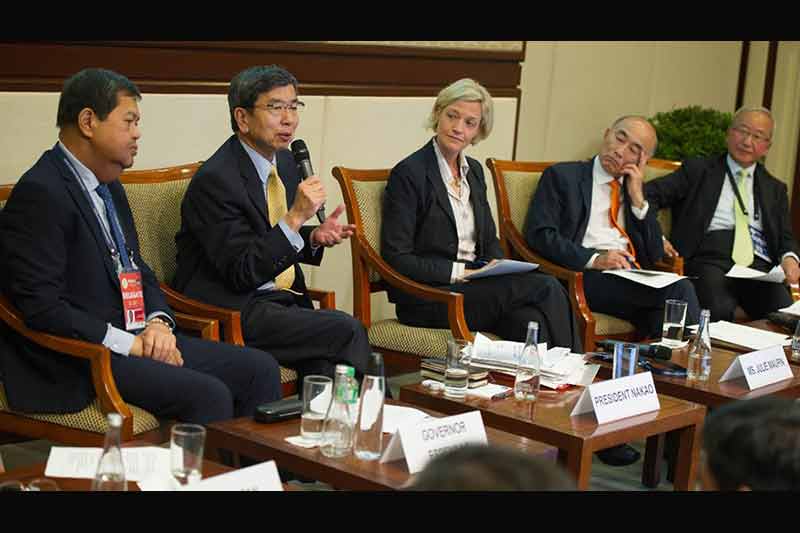
The Asian
Development Bank (ADB), the International Monetary Fund (IMF), and Bangko
Sentral ng Pilipinas (BSP) have co-hosted
a seminar during ADB’s 51st Annual Meeting in Manila,
Phillippines, to discuss how new technologies can improve financial inclusion
in Asia.
The
lack of access to financial services is widely viewed as a key challenge for
Asia’s poor households and smaller firms. About 2 billion people in the world
still do not have access to finance and half of them live in Asia and the
Pacific.
The
seminar noted that while the region has made important progress in expanding
and deepening its financial systems, it must also make further progress to
improve financial inclusion using new financial technologies.
According to ADB President Mr Takehiko Nakao, governments in
the region can improve financial inclusion by broadening access to basic
digital infrastructure and providing an enabling environment for innovators and
entrepreneurs.
“Policymakers should also consider ways to improve regulations,
including protecting consumers against cybercrimes and fraud, while striking
the right balance between innovation and financial stability,” said Mr Nakao.
ADB has been supporting many fintech initiatives in developing Asia. To lead efforts to promote and further mainstream digital technology in ADB projects and programs, ADB established a new Digital Technology for Development Unit within the Sustainable Development and Climate Change Department in March 2018.
The panel discussion took place at the seminar was titled “New
Technologies in Finance: Opportunities and Challenges for Asia”. Panellists included
IMF Deputy Managing Director Mr Mitsuhiro Furusawa, BSP Governor Mr Nestor
Espenilla, Chair Professor at Korea National Diplomatic Academy Mr Oh-Seok
Hyun, and Director of Social Impact and Public Regulatory Affairs for the IOTA
Foundation Ms Julie Maupin.
Panelists discussed how fintech, including new innovations
like distributed ledger technologies, virtual currencies, machine learning, and
big data, can improve financial inclusion.
“Fintech can help foster financial inclusion in Asia by its
ability to reach rural areas, making financial services more affordable, and
broadening access to small and medium-sized firms,” said IMF Deputy Managing
Director Mr Furusawa.
“Financial regulators will play a crucial role in creating
an environment that promotes financial inclusion while mitigating the risks,”
he said.
Seminar participants also agreed that new technologies hold
promise for bringing financial services to poorer communities and for
overcoming the challenge of obtaining the collateral needed to access formal
credit markets.
They also agreed that international financial institutions
such as the IMF and ADB can play a significant role in supporting countries as
new technologies are introduced.
“There will always be a trade-off or a healthy tension
between security and convenience as well as efficiency and financial integrity.
That is why the BSP has established a regulatory environment that allows
innovations to flourish, at the same time ensures that risks are effectively
managed,” said BSP Governor Mr Espenilla.
“BSP’s regulatory approach is shaped by three core
principles—ensure that regulation is risk-based, proportionate, and fair;
maintain active multi-stakeholder collaboration; and ensure consumer protection,”
he added.
















